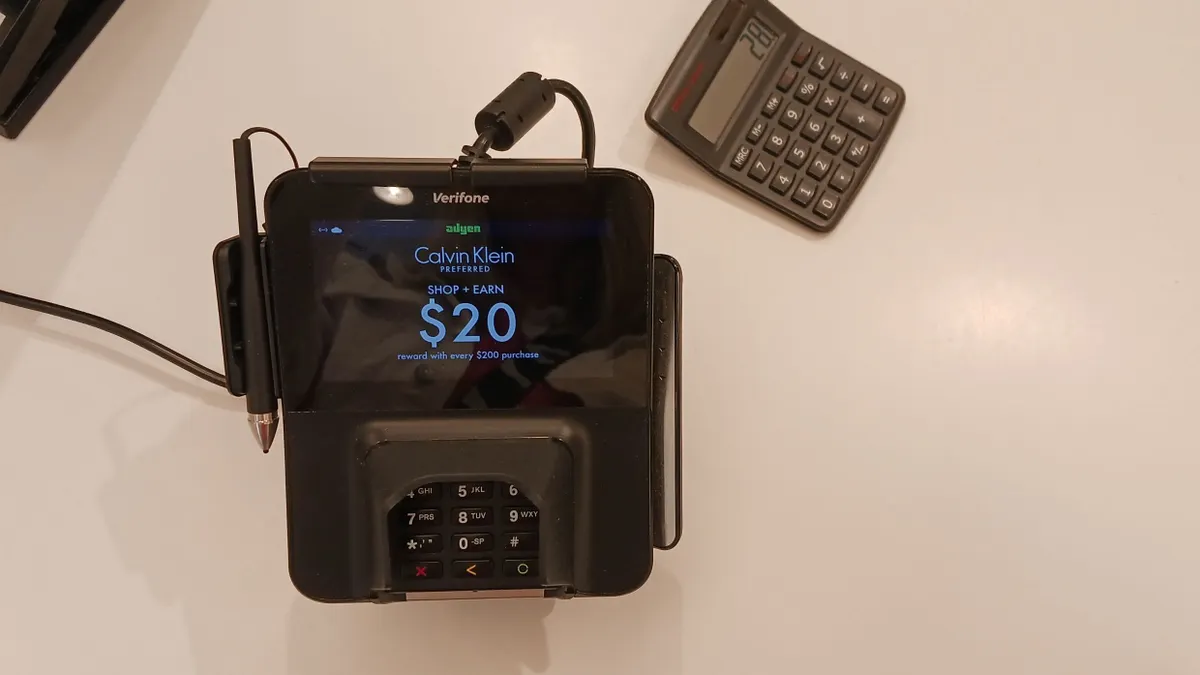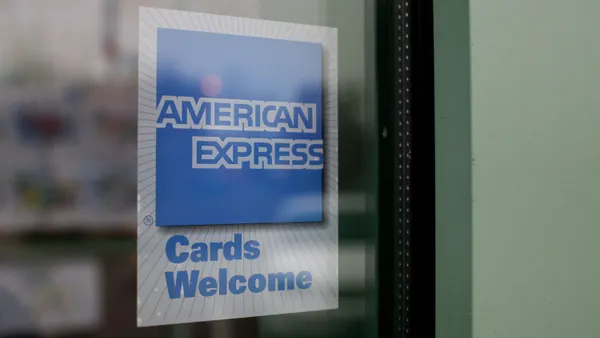Dutch payments processor Adyen plans to keep fueling expansion, including in the U.S., by building its own software and systems over buying up other businesses, Adyen’s president for North America, Davi Strazza, said in an interview this week.
The global provider of payments processing, point-of-sale hardware and software services for merchants, including retailers such as Crate & Barrel and Dick’s Sporting Goods, prizes its unique ties to clients and sourcing proprietary data from those relationships, he explained.
Specifically, the company can track customer data across store and e-commerce environments, Strazza said. He contends Adyen’s authorization rates are better with its custom approach.
“When we talk about optimization, we can go deeper than any other company can, because we have those direct connections,” Strazza said in the Monday interview. “We have unfiltered, unrestricted access to the data in the ecosystem.”
That’s true when there are trouble spots with services too. “We can go to customers and say ‘Hey, if you have a challenge, you're going to talk to Adyen, period,” he explained. “It's not going to be like a hot potato problem where there's pointing fingers. No, it's us.”
Sharpening its edge in the market is key because Adyen operates in a highly competitive arena, against processing behemoths Fiserv, with its Clover point-of-sale services, and Worldpay, now a unit of Global Payments. Then there are digital rivals PayPal Holdings and Stripe also battling for merchants’ payments volume.
Some of those competitors have taken a very different approach to expansion, opting for acquisitions.
For instance, Fiserv has been on a growth tear in recent years buying up other smaller businesses to bolster its overall enterprise. It absorbed Clover as part of its 2019 mega-deal to buy First Data, which had purchased Clover in 2012. It also bought Finxact, The LR2 Group, restaurant reservation management company Nextable, ISO Merchant One, BentoBox, NetPay, Integrity Payments, Pineapple Payments, and Ondot in recent years.
Adyen processed $1.4 trillion in payments volume last year, catering to U.S. clients that also included Cinemark Holdings, Patagonia, Etsy and EBay, Strazza said.
The North America operation that Strazza oversees is the company’s second-highest revenue-generating region, with the market contributing about a quarter of the top line.
Europe, the Middle East and Africa collectively accounted for 57% of Adyen’s revenue last year, the most of any region, followed by North America with 27%, Asia-Pacific with 10%, and Latin America yielding 5% of the company’s revenue last year, according to its 2024 annual report.
The EMEA region was the company’s fastest-growing area, with net revenue jumping 26% to $1.15 billion Euro (about $1.19 billion as of the end of last year) over 2023. For North America, revenue rose at a slightly slower pace, rising 25% to $536 million Euro (about $557.4 million).
As of last year, Adyen had about 4,345 employees globally, the annual report said.
Nearly a fifth of its workers, 800 employees, are in North America. That’s after about a 20% expansion of headcount last year, and the expectation is that the region will have similar growth in its workforce this year, Strazza said.
About 300 of its U.S. workers are in San Francisco, where Strazza is based, and about 250 are in each of Chicago and New York, with just 30 in Canada.
The company is still investing in its product set, but has a complete offering now in the North America region, including buy now, pay later, pay-by-bank, cards, digital wallets and financial services, Strazza noted. He argues that Adyen’s “differentiator is the depth of the services.”
“We continue to invest a lot in the U.S. as a business – the bulk of our large customers are based here, and so that excites us a lot,” Strazza said.













